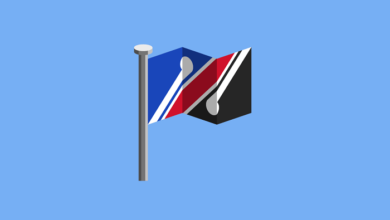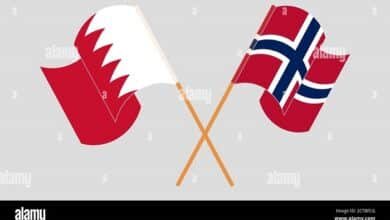The Ultimate Guide to Flag Waver Name

The term “flag waver name” refers to a label, title, or name that evokes strong feelings of patriotism, loyalty, and enthusiasm. It’s often associated with rallying support for a cause, team, or nation. Whether used in politics, sports, or cultural movements, a flag waver name unites individuals under a shared identity, making it a powerful tool for building collective energy.
Flag waver names can vary widely, but they all share the common goal of inspiring pride. For instance, slogans like “America’s Team” for the Dallas Cowboys or names like “The Red Devils” for Manchester United act as flag waver names in their respective domains. These names often carry deep emotional resonance, fostering a sense of belonging.
The Historical Context of Flag Waver Names
The concept of a flag waver name is deeply rooted in history. Throughout the ages, societies have used symbolic names to inspire unity and courage. For example, ancient Rome’s Legio X Equestris, known as “Caesar’s Army,” was a flag waver name that motivated soldiers to fight valiantly under Julius Caesar’s leadership.
During the American Revolution, terms like “Sons of Liberty” served as rallying cries for independence. These flag waver names helped galvanize support for the cause, transforming ordinary citizens into passionate patriots. Similarly, during World War II, slogans like “Rosie the Riveter” became symbolic of women’s contributions to the war effort, acting as a cultural flag waver name.
The evolution of flag waver names demonstrates their adaptability to different eras and purposes, showing how they’ve been repurposed to inspire loyalty across various contexts.
Why Flag Waver Names Matter in Modern Culture
In today’s world, the “flag waver name” remains a crucial element in branding, identity, and communication. Organizations, movements, and even individuals leverage these names to create a sense of unity and pride.
Take, for example, the nickname “The Fighting Irish” for the University of Notre Dame. This flag waver name not only celebrates the team’s Irish heritage but also embodies the spirit of determination and resilience. Similarly, “Team USA” serves as a unifying banner for American athletes competing on the global stage, invoking pride and allegiance among citizens.
Flag waver names extend beyond sports and politics; they’re also prominent in business. Companies like Apple with its “Think Different” campaign use these symbolic names or slogans to foster brand loyalty. The emotional connection created by such names makes them invaluable in building a sense of shared purpose.
The Psychology Behind Flag Waver Names
Flag waver names are more than just catchy titles; they tap into the psychology of human behavior. By appealing to emotions like pride, loyalty, and belonging, these names create a powerful bond between individuals and the group they represent.
Research shows that humans have an innate desire to belong to groups. A flag waver name acts as a symbol of this belonging, reinforcing group identity and cohesion. For instance, supporters of sports teams like “The All Blacks” (New Zealand’s rugby team) often feel a deep emotional connection to the team through its flag waver name. The name not only represents the team but also embodies its values and heritage.
Additionally, the repetition and visibility of flag waver names in chants, merchandise, and media further cement their impact. This constant reinforcement strengthens the association between the name and the feelings it evokes, ensuring its enduring significance.
Examples of Iconic Flag Waver Names Around the World
Flag waver names are a global phenomenon, transcending borders and cultures. Here are some notable examples:
- The Stars and Stripes: This iconic nickname for the American flag represents the ideals of freedom and democracy.
- La Furia Roja (The Red Fury): Spain’s national soccer team’s nickname evokes passion and determination.
- Die Mannschaft: Germany’s national football team’s name emphasizes teamwork and discipline.
- The Lions: England’s rugby team’s flag waver name highlights bravery and strength.
- The Green Machine: Associated with Ireland’s rugby team, this name underscores their relentless spirit.
These examples demonstrate the universal appeal of flag waver names and their ability to inspire devotion across diverse groups.
How to Create an Effective Flag Waver Name
Developing a compelling flag waver name requires a deep understanding of the target audience and the values you want to promote. Here are some key steps:
- Define the Core Message: Identify the central idea or emotion you want the name to convey. Whether it’s resilience, unity, or pride, the name should encapsulate this essence.
- Use Symbolism: Incorporate symbols that resonate with your audience. For example, national symbols like flags, animals, or colors can enhance the name’s impact.
- Keep It Memorable: Simplicity is key. A short, catchy name is more likely to stick in people’s minds.
- Test the Name’s Appeal: Before finalizing, gather feedback to ensure the name resonates with the intended audience.
- Integrate It into Branding: Use the flag waver name consistently across all platforms to reinforce its association with your identity.
By following these steps, you can craft a flag waver name that inspires loyalty and pride.
The Challenges of Using Flag Waver Names
While flag waver names can be incredibly effective, they also come with challenges. One of the primary risks is overuse, which can dilute their impact. For example, if a name is applied too broadly or inappropriately, it may lose its meaning and emotional resonance.
Another challenge is cultural sensitivity. A flag waver name that resonates with one group may alienate another. For instance, historical or nationalistic names might evoke pride in some but resentment in others. It’s crucial to consider the diverse perspectives of your audience when selecting a name.
Lastly, maintaining relevance over time can be difficult. As societal values evolve, a flag waver name that once inspired unity might become outdated or controversial. Regularly reassessing the name’s significance ensures its continued effectiveness.
Conclusion
Flag waver names are more than just words; they’re symbols of identity, pride, and unity. From historical movements to modern branding, these names have the power to inspire loyalty and bring people together. By understanding their history, psychology, and cultural significance, we can appreciate their role in shaping collective identities.
Whether you’re rallying a team, building a brand, or leading a movement, a well-crafted flag waver name can be your most powerful asset. By tapping into its emotional and symbolic power, you can create a lasting legacy that resonates with your audience.
FAQs
1. What makes a flag waver name effective? An effective flag waver name is memorable, emotionally resonant, and aligned with the values of its audience. It should inspire pride and unity.
2. Can flag waver names be used in marketing? Absolutely! Many brands use flag waver names or slogans to create strong emotional connections with their customers, fostering brand loyalty.
3. Are flag waver names always patriotic? No, while many flag waver names evoke patriotism, they can also represent other forms of identity, such as team spirit, cultural heritage, or organizational values.
4. How do flag waver names evolve over time? Flag waver names evolve to reflect changing societal values and contexts. Regular reassessment ensures their continued relevance and impact.
5. Can a flag waver name have negative connotations? Yes, if not carefully chosen, a flag waver name can unintentionally alienate or offend certain groups. It’s important to consider cultural sensitivities and diverse perspectives during the naming process.





